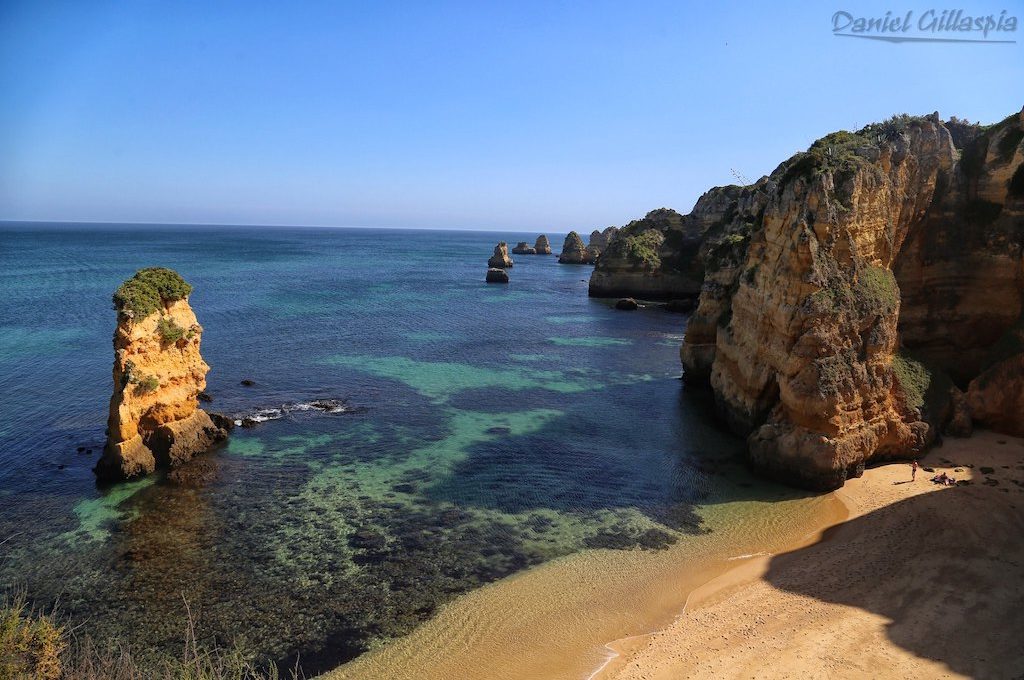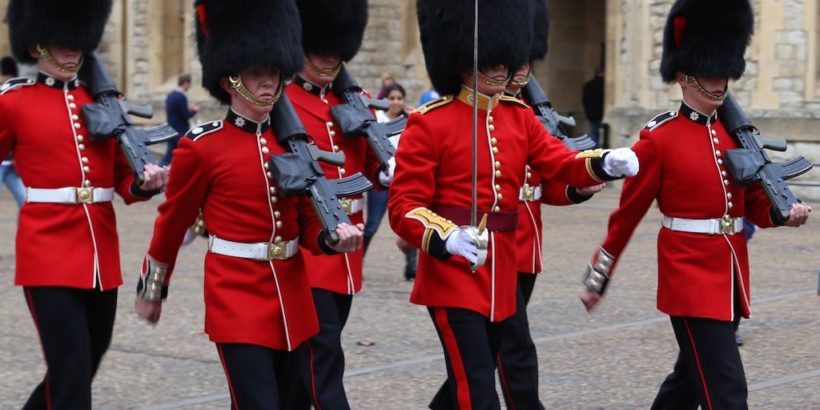Is travel a hobby?
It’s a philosophical question that I’ve often thought about as I transitioned from someone who played around with travel blogging to becoming a full-time travel blogger.
Below, I’ll talk about what a hobby is and when I think travel qualifies as a hobby and when it does not. I’ll also talk about the differences between hobbies, interests, and lifestyles as they pertain to travel.
In the end, I think this question is more than just a pointless discussion because it can reveal some learnings that may improve your experiences as a traveler by getting you to re-think things like the frequency of you travels.
Table of Contents
What is a hobby?
Let’s start with a couple of widely accepted definitions of a hobby.
According to Oxford Languages a hobby is “an activity done regularly in one’s leisure time for pleasure.”
According to Merriam-Webster a hobby is “a pursuit outside one’s regular occupation engaged in especially for relaxation.”
Now that we have some framework for deciding if travel is a hobby, let’s break down the definitions and apply them to travel.
Activity or pursuit
No matter what hobby definition you use it’s clear there is a focus on taking action in an activity or pursuit.
And that is a key distinction between a hobby and an interest.
An interest is more of a curiosity that does not require active participation in an activity, while a hobby is all about active participation in an activity.
You may have a passion for basketball and enjoy learning more about the sport.
But that’s mostly an interest.
Now, if you’re playing pick-up games every weekend at Rucker Park or actively collecting NBA rookie cards, that’s more of a hobby.
Let’s put it in the context of travel.
If you never book a ticket, reserve a tour, step on a plane, or check into a hotel, but you love watching YouTube videos of people visiting places like the Eiffel Tower and Big Ben, that’s more of an interest in travel.
Why?
Because you are not actually engaging in travel activities.
Put another way, an interest is often more about consuming and observing to appease your curiosities.
Meanwhile, hobbies are more about actively participating in activities to satisfy desires purely for pleasure, fun, and relaxation.
Often times an interest will transform into a hobby and you may end up having both an interest and a hobby in something.
For example, you may have an interest in aviation and enjoy reading about the different types of aircraft and watching reviews of them.
After a few months you might start collecting plane models or even start flying just for fun. That’s when you begin to transition from interest to interest + hobby.
Tip: Use the free app WalletFlo to help you travel the world for free by finding the best travel credit cards and promotions!

Done regularly
The other key to a hobby is that it is done on a regular basis.
The frequency is important for a hobby because often times a hobby is a type of skill that you can build upon.
It’s a pursuit that takes consistent commitment.
For example, learning a new language or learning a new instrument is often someone’s hobby and they get better at it so long as they practice it on a regular basis. There is a certain confidence and comfort level that grows along with regular practice.
When something is an interest you may still build upon your expertise the more you engage with your interest on a regular basis. But often times an interest can go dormant for an extended amount of time and resurface without any major negative consequences.
Plenty of people who have an interest in basketball don’t follow the off-season super close but when the next season rolls around they are instantly back into the sport on the same level of interest they were the year before.
But if you were to drop your French lessons for six months and then try to hop back into it, the amount of enjoyment you would get out of it would probably have dropped significantly because you would have lost a lot of progress due to in action.
When it comes to travel you actually can become a more skilled traveler with regular trips.
When I was grounded for several months during the pandemic and finally got back to traveling I noticed I was pretty rusty. Packing did not come as natural and I just did not feel as comfortable getting through security, boarding, figuring out public transport, etc.
So I definitely feel like there can be a drop in skill level when you stop traveling for a while, similar to other more traditional hobbies.
As far as what constitutes a “regular basis,” that is honestly just up to a subjective determination and could vary based on the type of hobby.
Some hobbies have multiple components to them so that you do engage in them on a regular basis but just in different forms.
Let’s consider travel.
Unless you have some really good friends and took some really good plane candies, you don’t typically just wake up in a foreign country.
Instead, you start planning out your trip weeks or months (or in some cases even years) in advance for the most part.
You have to research flights, hotels, public transportation, local scams, visa requirements, things to do, and that is all after you finally set on your destination.
In some cases, you might even try to pick up a new language which requires an insane amount of regular practice (and could be its own hobby).
For many, there are all of those hours spent day dreaming about your globetrotting until it is time to start packing.
Then there is the actual travel and after that the unpacking of belongings and unpacking of experience, which involves going through hundreds of your photos, editing them, sharing them, reflecting on them, etc.
This process sometimes goes on for weeks — at least it does for me.
So one trip could involve weeks or months of regular travel related activities both before and after the trip. For this reason I don’t think you actually have to take tons of trips in a year to be a travel hobbyist.
Taking one to two trips per year could qualify as a hobby in the right circumstances.

Leisure time
Leisure time simply means “free time.”
So when you are not working or subject to some other type of obligation, are you traveling or engaging in some type of activity related to your travels?
This is a major difference between hobbies and interests.
Interests don’t require you to engage with them during your free time.
You could be a fanatic about the NBA and become a sports analyst where all you do is study statistics and keep up with team rosters as your full-time job.
Your interest is then your job/occupation and that is totally fine.
If you started to gain attention from the NBA during your weekend pick up games at the Rucker and you got drafted, basketball is no longer your hobby; it just became your occupation.
This is why I don’t think traveling can realistically be a hobby for someone like me who is a travel blogger.
It is my livelihood and a major source of income and that is just not compatible with hobby status.
You could say that it is an interest but more accurately it could be described as a lifestyle.
According to Merriam-Webster a lifestyle is the “the typical way of life of an individual, group, or culture.”
You start getting into travel as a lifestyle when you venture into travel blogging, digital nomad living, RVing, backpacking, etc.
Essentially, when the core of your existence revolves around traveling and your income is somehow tethered to travel, that’s more your “way of life” than something you do in your free time.
Travel could still be a hobby for someone like a digital nomad, but I would wager that it will trend more towards a lifestyle for most.

For pleasure or relaxation
The next big factor for a hobby is that you are doing it for pleasure or relaxation.
This factor is where there is plenty of overlap with a hobby and an interest since you could engage with both of those for pleasure and relaxation.
For example, it might relax you to watch sports on the weekend in the same way it would relax someone to book a boutique hotel in the country for a weekend.
As far as travel goes it’s easy to get a lot of pleasure from travel in a lot of different ways.
You could kick back at an all-inclusive resort and enjoy your pool time and unlimited drinks, admire the northern lights, go scuba diving, relax on a balcony with an amazing view of the beach, the list of pleasure opportunities in travel is seemingly infinite.
Travel can be a two-edged sword when it comes to relaxation, though.
Vacations like those in the Maldives can be ultra relaxing.
But travel can also be extremely stressful and taxing if things go wrong and I have been involved in plenty of those situations.
Even though travel can end up being chaotic I think it is more about your intention of seeking relaxation than the actual outcome.
This would be similar to someone practicing guitar as a hobby and having a bad practice session. The fact that a single session does not produce a lot of pleasure or relaxation does not mean that the continual practice of the hobby will not.
With that said, sometimes you go into a trip knowing that the experience may not be so relaxing and in those cases it’s more about the pleasure that comes from accomplishing the feat.
For example, you might visit a destination known for being a bit dangerous or shady to experience that yourself. Why? Because you would like to show yourself what you are capable of handling uncomfortable situations and settings and perhaps more mentally tough than you give yourself credit for.
The travel experience may be anything but relaxing but by the end of it you’ll feel a great sense of pleasure based on the fact that you “survived.”

How to make travel a hobby
OK, so now you have an idea of when travel falls into the territory of a hobby.
But how can you turn travel into a hobby for yourself?
I’ve got two major recommendations.
Make sure you’re doing something as frequently as practical
A hobby is something that you do on a regular basis. So if you’re not traveling regularly it’s not technically qualifying as a hobby.
But there’s a more meaningful reason why you might want to travel often.
If you do not actually travel on a reasonably frequent basis you’re not going to be getting “better” at traveling. Why would you care about getting better at traveling?
The more you travel, the more comfortable and confident will become which will make it easier to enjoy your travels and relax. Pursuing enjoyment and relaxation are major components of a hobby and that’s why you want to keep traveling often — it’ll become easier to derive pleasure from your travels.
If you only travel once in a blue moon, you may not ever achieve the comfort level that a true travel hobbyist would have.
Don’t try to monetize your travels
As soon as you start to monetize something, the game changes. I’m not saying that you can’t have fun and monetize at the same time — they are not mutually exclusive. But monetizing something adds an additional pursuit.
You are no longer pursuing travel; you are pursuing travel plus monetization.
That can remove the “free time” aspect of your hobby and really start to reduce the pleasure and relaxation gained from your travel hobby.
I think there is debate about whether or not a hobby can be monetized on a low level. I would say that you can but it is just a very slippery slope because once you start making money doing something that you enjoy the natural tendency is to start doing that full-time which is exactly what happened with me and travel blogging.
Final word
For those who care about the philosophical question of whether or not travel is a hobby I would say that under the right circumstances travel can absolutely qualify as a hobby.
Daniel Gillaspia is the Founder of UponArriving.com and the credit card app, WalletFlo. He is a former attorney turned travel expert covering destinations along with TSA, airline, and hotel policies. Since 2014, his content has been featured in publications such as National Geographic, Smithsonian Magazine, and CNBC. Read my bio.

